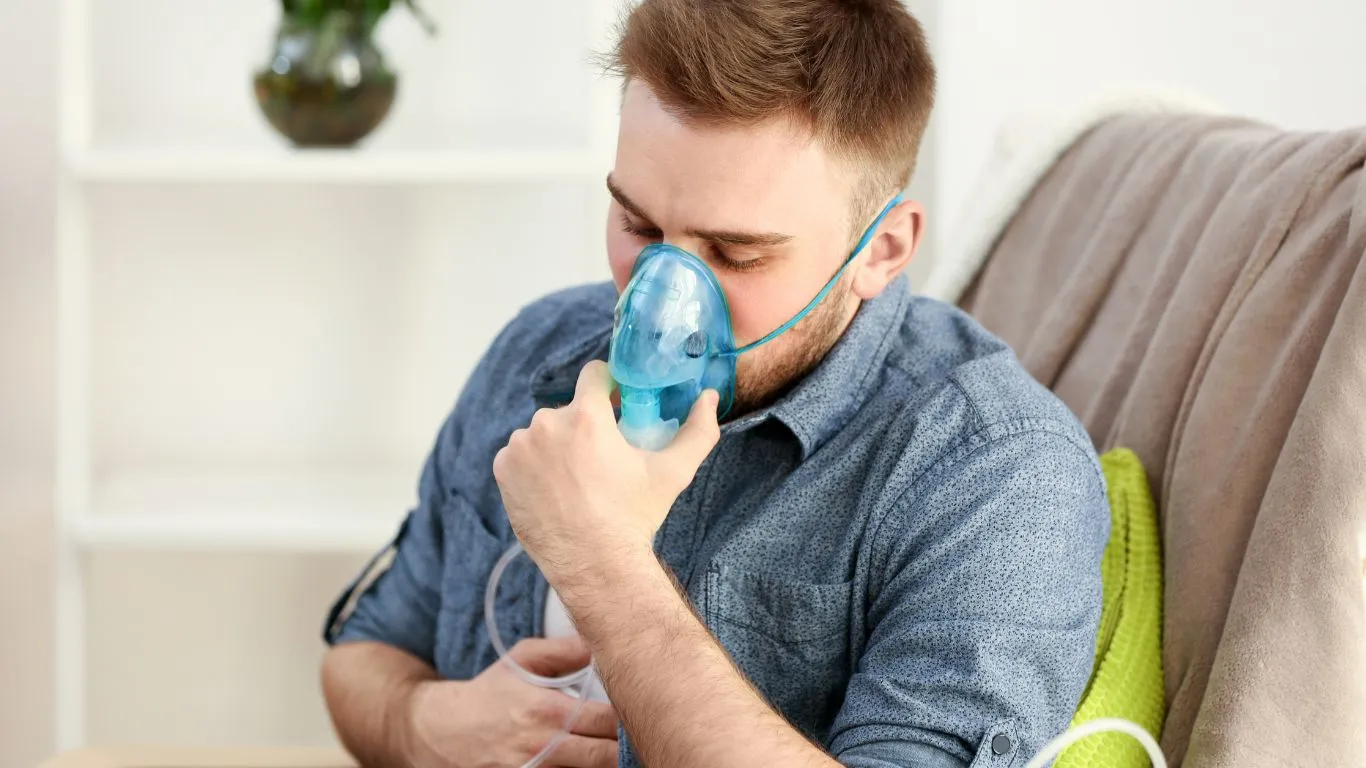Asthma Symptoms in Teenagers: A Complete Guide
Asthma is one of the most common chronic conditions affecting teenagers today. It can be difficult to spot, especially since many of the symptoms overlap with other respiratory issues like colds or allergies. But, recognizing asthma symptoms early can make a huge difference in managing the condition and improving your teen’s quality of life.
In this guide, we’ll dive deep into the signs and symptoms of asthma in teenagers, provide tips on managing it, and discuss how to help teens lead an active, healthy life despite the condition. Whether you’re a parent, caregiver, or a teen dealing with asthma yourself, we’ve got the info you need.

What Is Asthma?
Asthma is a chronic lung condition that causes the airways in the lungs to become inflamed and narrow, making it harder to breathe. This condition can cause wheezing, coughing, shortness of breath, and tightness in the chest, all of which can be frightening if you’re not sure what’s happening.
Asthma symptoms can come and go, often triggered by things like dust, pollen, exercise, or even stress. In teenagers, asthma can be particularly challenging because they’re dealing with growth and changes in their bodies, which can affect how they manage the condition.
Common Asthma Symptoms in Teenagers
Teenagers may not always recognize or report their asthma symptoms, and sometimes they might chalk up their breathing troubles to other causes like stress or puberty. Here are some of the most common asthma symptoms in teens:
1. Wheezing
Wheezing is a high-pitched sound that happens when you breathe, especially during exhalation. It’s one of the most classic signs of asthma and occurs when the airways are narrowed, making it harder to get air in and out. If your teen is wheezing regularly, it might be a sign of asthma that needs medical attention.
2. Chronic Coughing
Asthma often causes a persistent cough that may be worse at night or in the early morning. This cough can be dry or mucus-producing and can interfere with a teen’s ability to sleep or perform daily activities like sports. If the cough doesn’t seem to go away, asthma could be the cause.

3. Shortness of Breath
If a teenager is frequently short of breath, especially after physical activity, it could be a sign of asthma. Asthma causes the airways to swell and constrict, reducing airflow to the lungs. This can leave your teen feeling winded, even after light exercise or physical activities.
4. Chest Tightness
Teenagers with asthma may describe a feeling of tightness in their chest, which can make it feel hard to take deep breaths. This sensation is often worse at night or when they’re exposed to asthma triggers like dust, smoke, or strong odors.
5. Increased Mucus Production
Asthma can cause the airways to produce extra mucus, which can clog the airways and make breathing difficult. A teen with asthma might have to clear their throat frequently or produce phlegm, especially when they’re experiencing a flare-up.
Common Triggers of Asthma in Teenagers
Several factors can trigger asthma symptoms in teens. Recognizing these triggers can help prevent flare-ups and keep asthma under control. Here are some of the most common asthma triggers for teenagers:
1. Allergens
Teenagers with asthma are often sensitive to allergens like pollen, mold, dust mites, pet dander, and cockroaches. These allergens can trigger inflammation and cause asthma symptoms. During allergy season, asthma symptoms may become worse, and extra precautions may be needed.
2. Physical Activity and Exercise
Exercise-induced asthma is common among teenagers who are active in sports. The combination of heavy breathing and exposure to cool, dry air can cause asthma symptoms to flare up. This is often referred to as exercise-induced bronchoconstriction (EIB).
3. Respiratory Infections
A common cold, flu, or other respiratory infections can worsen asthma symptoms in teenagers. The inflammation and mucus buildup from an infection can make asthma harder to control, leading to more frequent flare-ups.
4. Air Pollution and Smoke
Exposure to air pollution, smoke (from cigarettes or wildfires), or strong fumes can significantly impact asthma symptoms. Teens living in areas with poor air quality might experience more frequent asthma flare-ups.
5. Stress and Emotional Triggers
Believe it or not, stress and emotional triggers like anxiety or strong emotions can actually provoke asthma symptoms in some teenagers. This is due to the body’s stress response, which can lead to physical changes in the airways.
How to Manage Asthma in Teenagers
Managing asthma in teenagers requires a combination of lifestyle changes, medication, and awareness of triggers. The goal is to keep symptoms under control so that your teen can lead a normal, active life.
1. Create an Asthma Action Plan
Work with your teen’s healthcare provider to create a personalized asthma action plan. This plan should include information on how to manage asthma on a daily basis, how to recognize worsening symptoms, and what to do during an asthma attack.
2. Monitor Asthma Symptoms
Encourage your teen to keep track of their asthma symptoms. This includes noting when symptoms occur, how severe they are, and what triggers might be at play. Monitoring symptoms can help identify patterns and allow for better management.
3. Use Medication as Prescribed
There are two types of asthma medications: long-term control medications and quick-relief (rescue) medications. Long-term medications help prevent symptoms, while quick-relief medications are used to treat flare-ups when they happen. It’s important that your teen takes their medications exactly as prescribed by their doctor.
4. Avoid Triggers
Help your teen identify their asthma triggers and avoid them when possible. For example, if allergens are a trigger, keeping the house clean and using an air purifier can help. If exercise triggers asthma, consider using a pre-exercise inhaler as advised by the doctor.
5. Encourage Physical Activity
Even though exercise can sometimes trigger asthma symptoms, it’s still important for teenagers to stay active. Encourage activities like swimming, which are often easier on the lungs, and make sure your teen uses their inhaler before exercise if recommended by their doctor.

Conclusion
Asthma is a manageable condition, especially when symptoms are caught early and treated properly. By being aware of the symptoms, understanding triggers, and following a solid management plan, teenagers with asthma can lead healthy, active lives. If you think your teen might be experiencing asthma symptoms, it’s important to consult with a healthcare provider who can help create a treatment plan tailored to their needs.
Appendices
FAQs
- What are the first signs of asthma in teenagers? Early signs of asthma in teens include wheezing, coughing (especially at night), shortness of breath, and chest tightness.
- Can asthma be triggered by stress? Yes, stress and emotional factors can trigger asthma symptoms in some teenagers, leading to difficulties with breathing.
- What is the best way to manage asthma in teenagers? The best way to manage asthma is by following an asthma action plan, using medications as prescribed, avoiding known triggers, and keeping track of symptoms.
- Are exercise-induced asthma symptoms common? Yes, exercise-induced asthma is common in teenagers who are physically active. Taking a pre-exercise inhaler may help manage symptoms.
- Can a teenager outgrow asthma? While some children may see their symptoms improve as they get older, many teens continue to have asthma into adulthood. Regular monitoring and treatment are key to managing the condition.
References
- Lung Association. (2024). Asthma and Teenagers: What You Should Know. Read Article
- National Institutes of Health. (2024). Asthma in Adolescents: A Guide for Parents and Caregivers. Read Article
- Asthma and Allergy Foundation of America. (2024). Understanding Asthma in Teens. Read Article
Disclaimer: The information provided in this article is for educational purposes only and does not substitute for professional medical advice. Always consult with your healthcare provider for diagnosis and treatment of asthma or other medical conditions.














